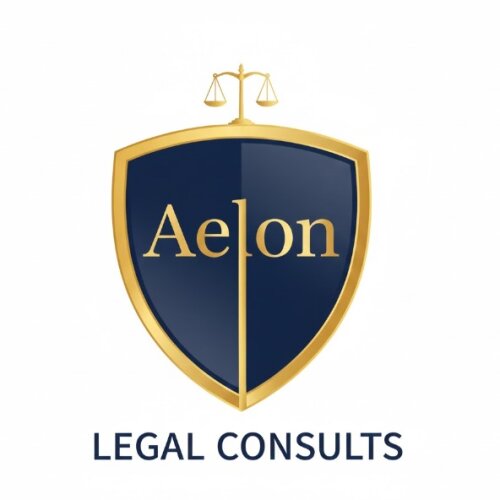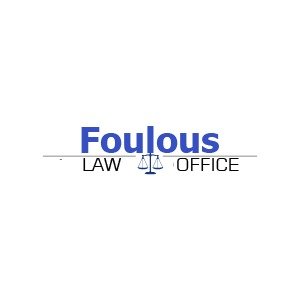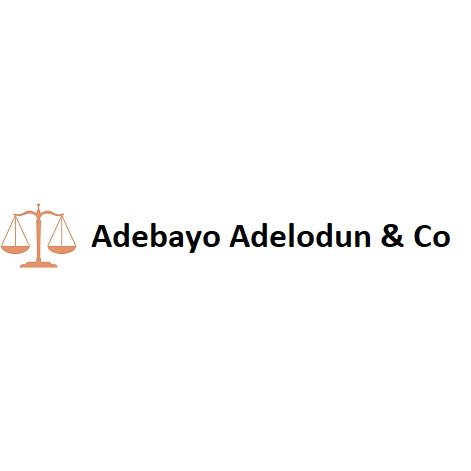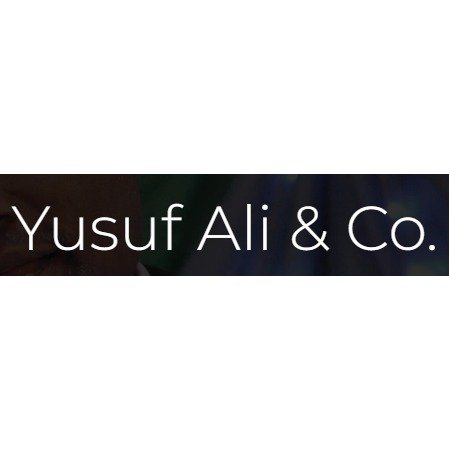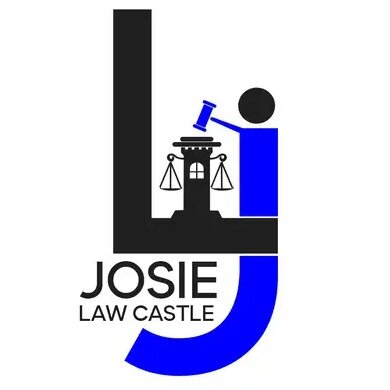Best Sanctions & Export Controls Lawyers in Ilorin
Share your needs with us, get contacted by law firms.
Free. Takes 2 min.
List of the best lawyers in Ilorin, Nigeria
About Sanctions & Export Controls Law in Ilorin, Nigeria
Sanctions and export controls refer to a combination of national and international legal measures that regulate, limit, or prohibit certain trade activities, transactions, or shipments. These laws are designed to protect national security, fulfill international obligations, prevent illegal trade, and restrict dealings with specific individuals, companies, or countries. In Ilorin, the application of these laws reflects the broader Nigerian regulatory framework, which is influenced by both domestic statutes and Nigeria's commitments under international agreements. Understanding how these rules apply locally is crucial for individuals or businesses involved in regional or cross-border trade.
Why You May Need a Lawyer
Navigating sanctions and export controls can be complex, especially with regularly changing regulations and the implications of violating these laws. People and businesses in Ilorin may require legal assistance in the following situations:
- Seeking to export goods or services to other countries, especially those subject to sanctions.
- Uncertainty regarding trade with specific countries, companies, or individuals listed on sanctions lists.
- Responding to an investigation or allegation of violating export controls or sanctions.
- Applying for licenses or permits to export controlled items.
- Ensuring compliance with trade laws to avoid severe penalties.
- Understanding how international agreements impact regional business practices.
A lawyer with expertise in this field can help ensure compliance, respond to queries from regulatory agencies, and defend against any legal actions.
Local Laws Overview
Several key aspects define the legal landscape for sanctions and export controls in Ilorin, Nigeria:
- Nigerian Export and Import Prohibition List: The Nigerian Customs Service enforces prohibitions on certain imports and exports, including hazardous materials, endangered species, and items subject to international embargoes.
- Central Bank of Nigeria (CBN) Regulations: The CBN monitors and controls cross-border financial transactions to comply with national and international sanctions.
- Anti-Money Laundering and Combating Financing of Terrorism (AML/CFT): These regulations have direct bearing on compliance with sanctions and export controls, impacting financial institutions, exporters, and importers.
- Partnership with International Bodies: Nigeria observes United Nations Security Council sanctions and other international frameworks, making it critical for businesses in Ilorin to be aware of more than just domestic rules.
- Licensing and Permitting: Certain goods, notably sensitive technology and resources, require permits from government ministries or agencies for lawful export.
Failure to comply with these laws can result in severe penalties, including fines, seizure of goods, or imprisonment.
Frequently Asked Questions
What are sanctions and export controls?
Sanctions and export controls are legal measures that restrict trade or financial transactions with specific countries, entities, or persons. They may also control the movement of sensitive goods to ensure national security and compliance with international agreements.
Who enforces these rules in Ilorin, Nigeria?
Multiple agencies enforce sanctions and export controls in Nigeria, including the Nigerian Customs Service, Central Bank of Nigeria, Economic and Financial Crimes Commission, and Nigerian Police Force.
Are all exports from Ilorin subject to controls?
No, not all exports are subject to controls. However, certain goods such as weapons, dual-use technologies, strategic resources, and certain agricultural products are regulated. Exporters should always check the latest lists and regulations.
What are the penalties for violating sanctions or export controls?
Penalties can include fines, the seizure of goods, loss of trading licenses, civil suits, and even imprisonment, depending on the severity of the violation.
How can I find out if a country or company is under Nigerian sanctions?
You can consult the lists published by the Central Bank of Nigeria, the Nigerian Customs Service, and relevant government agencies. Lawyers specializing in this field can provide comprehensive checks.
Do international business deals require different considerations?
Yes, international transactions often involve both Nigerian regulations and those of other countries. Detailed due diligence and legal advice are recommended to avoid unintentional breaches.
Can individuals export goods abroad without special licenses?
Some goods may be exported freely, but many require permits or licenses, especially if they are on controlled lists. It is wise to consult with authorities or a legal professional before proceeding.
Are there any exceptions to export controls?
There can be exceptions for humanitarian aid, diplomatic supplies, or under specific international agreements. Exemptions must be verified and documented properly.
What should I do if I am accused of violating export or sanction laws?
Contact a lawyer experienced in sanctions and export controls immediately. Do not make statements to regulatory agencies before obtaining legal advice.
How often do these laws change, and how can I stay updated?
Sanctions and export control laws can change frequently, especially in response to international developments. Staying updated requires regular monitoring of government publications, professional advisories, and consulting legal counsel.
Additional Resources
If you need more information or official guidance, you may contact the following institutions:
- Nigerian Customs Service (NCS): For information on import and export prohibitions and procedures.
- Central Bank of Nigeria (CBN): For regulatory guidance on sanctioned individuals, countries, and financial transactions.
- Economic and Financial Crimes Commission (EFCC): For inquiries about compliance, investigations, and reporting violations.
- Nigerian Export Promotion Council (NEPC): For advice and support for legitimate exporters.
- Federal Ministry of Justice: For national legal advice and updates to the law.
- Local law firms in Ilorin: For personalized legal advice and representation.
Next Steps
If you have concerns about sanctions or export controls, or require legal assistance, you should:
- Consult with a legal professional specializing in trade law or export controls based in Ilorin.
- Gather all relevant documents, including any notifications, contracts, or correspondence with government agencies.
- Reach out to the appropriate local regulatory agency for clarifications or to report a potential issue.
- Monitor official announcements for any changes to export or sanctions laws relevant to your business or activities.
- Consider attending seminars or training sessions on compliance, often held by industry associations or government agencies.
Professional legal guidance can help protect your interests and ensure you remain compliant with all applicable sanctions and export control laws.
Lawzana helps you find the best lawyers and law firms in Ilorin through a curated and pre-screened list of qualified legal professionals. Our platform offers rankings and detailed profiles of attorneys and law firms, allowing you to compare based on practice areas, including Sanctions & Export Controls, experience, and client feedback.
Each profile includes a description of the firm's areas of practice, client reviews, team members and partners, year of establishment, spoken languages, office locations, contact information, social media presence, and any published articles or resources. Most firms on our platform speak English and are experienced in both local and international legal matters.
Get a quote from top-rated law firms in Ilorin, Nigeria — quickly, securely, and without unnecessary hassle.
Disclaimer:
The information provided on this page is for general informational purposes only and does not constitute legal advice. While we strive to ensure the accuracy and relevance of the content, legal information may change over time, and interpretations of the law can vary. You should always consult with a qualified legal professional for advice specific to your situation.
We disclaim all liability for actions taken or not taken based on the content of this page. If you believe any information is incorrect or outdated, please contact us, and we will review and update it where appropriate.





